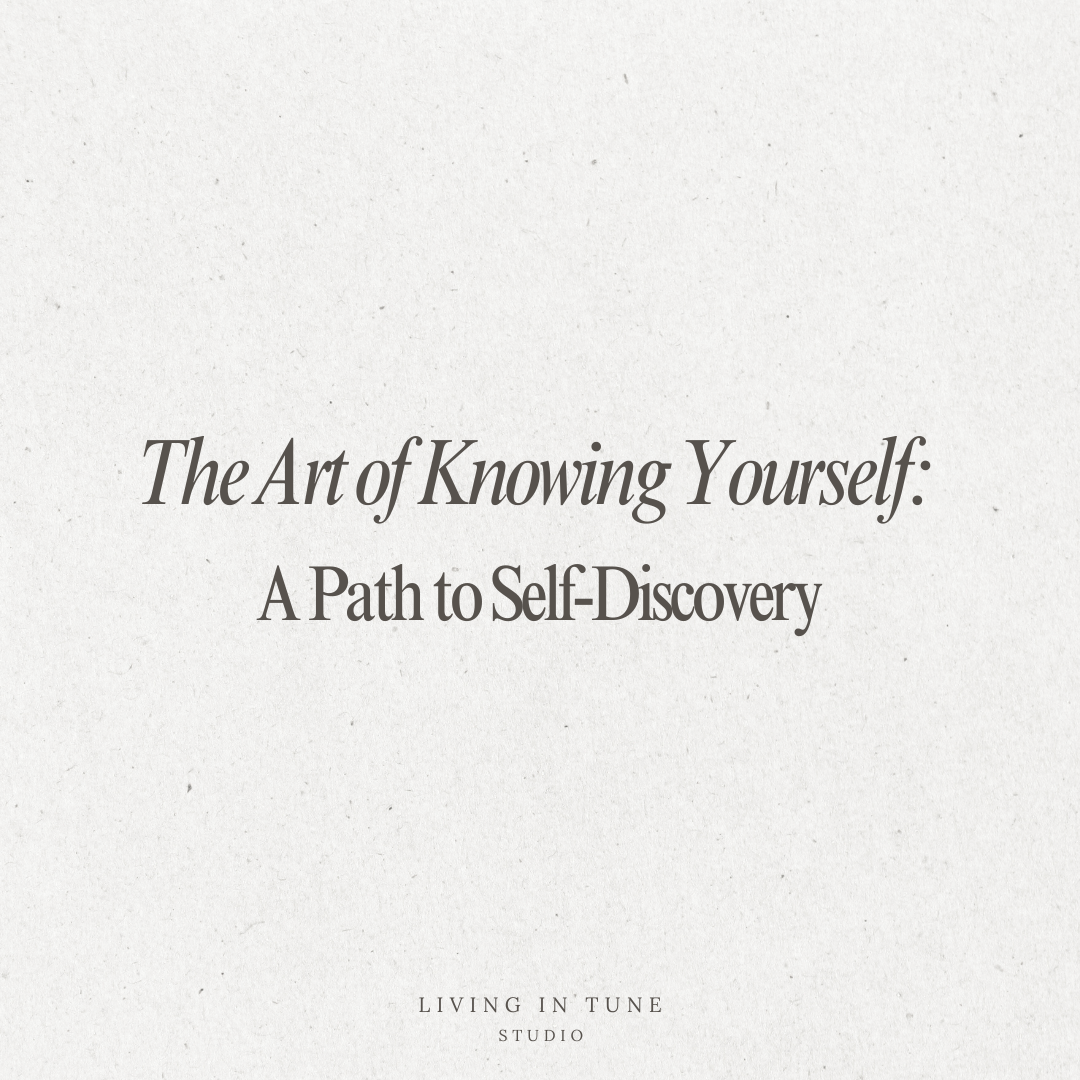
The Art of Knowing Yourself: A Path to Self-Discovery
In a world where external success is often prioritized over internal reflection, it’s easy to get caught up in the race for achievements, approval, and societal validation. Many people spend their lives chasing goals that may not be aligned with their true desires, simply because they haven’t taken the time to ask themselves one critical question: Who am I?
Perhaps you’ve met someone—or even been that person—who doesn’t know what they truly like or dislike, who has no sense of their dreams or aspirations. Maybe they follow a path dictated by others—whether it’s family, friends, or society—without ever questioning if it’s the right one for them. They go through life achieving success that feels hollow, chasing what others are doing, only to realize at some point that it doesn’t work for them. This can take years, even a lifetime, to understand—and by the time they do, it may be too late.
The root of this problem often lies in a lack of self-discovery, self-awareness, and self-knowledge. In a culture where success and advancement are highly celebrated, introspection—an essential ingredient in personal growth—can easily be overlooked. But the truth is that knowing yourself is the foundation of a fulfilling and intentional life.
What Is Self-Knowledge and Why Does It Matter?
Self-knowledge is the act of understanding who you are, why you behave the way you do, and what truly drives you. It’s the process of asking, “What are my values?” and “What makes me happy?” Self-knowledge is formed through a combination of physical, social, and psychological experiences, such as self-perception, introspection, social comparisons, and others’ evaluations.
One of the key components of self-knowledge is self-awareness. This can be broken down into two types: internal self-awareness and external self-awareness.
- Internal self-awareness means having a deep understanding of who you are, what your core values are, and how they align with your thoughts, actions, and relationships. You are grounded in your sense of self, and your behavior reflects that inner understanding.
- External self-awareness involves understanding how others perceive you. It’s the ability to recognize the impact your behavior has on others and how they interpret your actions. When both internal and external self-awareness are in balance, you have a clear sense of who you are, what you want, and how your presence affects those around you.
Why is this so important? Because self-knowledge is essential for making informed decisions about your life. It helps you make choices that align with your true self, such as picking the right career, finding a life partner, or deciding where and how to live. It also enables you to understand and make sense of your experiences, providing a meaningful narrative for your past, present, and future.
Self-knowledge is what empowers us to live intentionally and make positive changes. It gives us the tools to understand and shape our lives in a way that brings true fulfillment, rather than simply following the paths set by others.
How Can You Achieve Self-Discovery?
Self-discovery and self-awareness don’t happen overnight—they require intentional practice and reflection. Here are some ways you can begin your journey toward greater self-knowledge:
-
Journaling
Writing can be a powerful tool for self-reflection. Journaling helps you process emotions, clarify your thoughts, and reflect on your experiences. Over time, you can look back at your old entries to see how much you’ve grown and evolved. It’s an invaluable way to track your journey of self-discovery.
-
Reflect on Your Personal Values
Understanding your values is key to understanding why you make the choices you do. By identifying and aligning with your core values, you can begin living a life that is intentional and purposeful. Tools like The Alignment Deck are designed to help you explore your values, giving you clarity on what drives your decisions and how you can live more authentically.
-
Reading Fiction
Fictional stories allow us to see the world through the eyes of others. By connecting with characters in books, we can reflect on our own personalities, behaviors, and tendencies. Sometimes, seeing ourselves in others’ struggles or triumphs helps us understand ourselves better. Fiction also provides a broader perspective on human experiences, encouraging empathy and self-awareness.
-
Mindfulness Meditation
Mindfulness practices are a great way to cultivate both internal and external self-awareness. Meditation helps you stay present, observing your thoughts, feelings, and sensations without judgment. By observing your inner world, you gain deeper insight into your true self and how you relate to the world around you.
The Power of Knowing Yourself
The process of self-discovery is one of the most empowering journeys you can take. When you know yourself—when you understand your values, your desires, and the underlying motivations behind your actions—you can make decisions that are aligned with your authentic self. This creates a sense of purpose, fulfillment, and balance in your life.
By engaging in self-reflection, being mindful of your emotions, and committing to a continuous journey of self-awareness, you can move beyond the noise of external expectations and create a life that truly resonates with who you are. After all, living authentically—knowing who you are and what you truly want—is the key to happiness, contentment, and success.